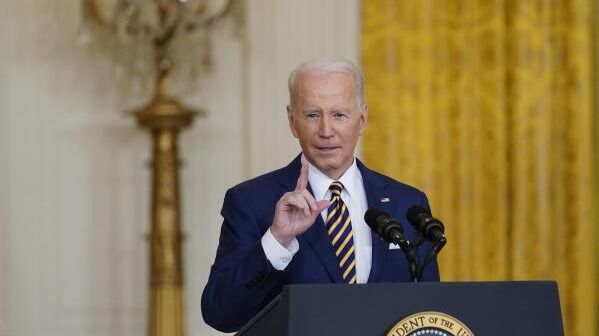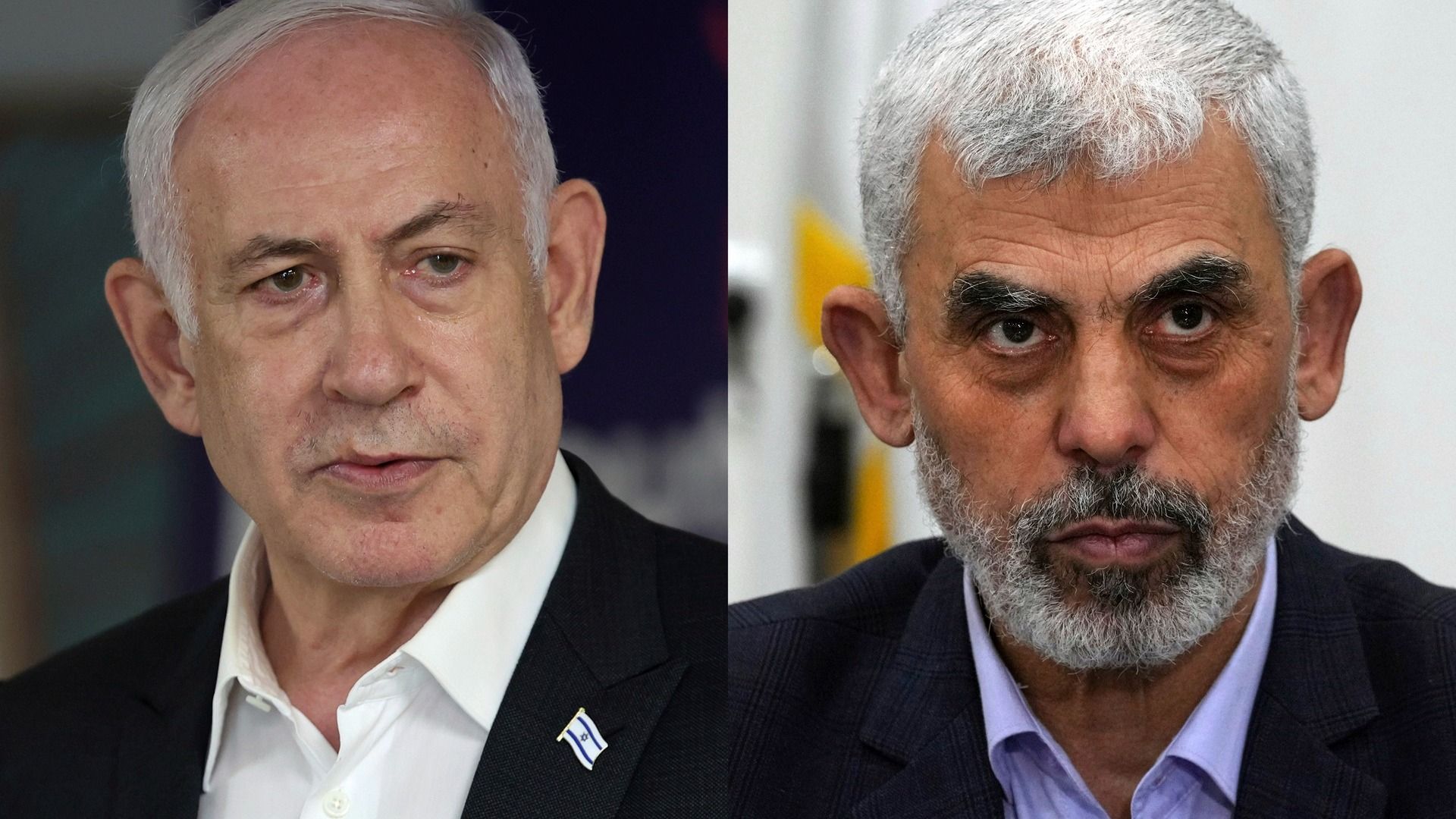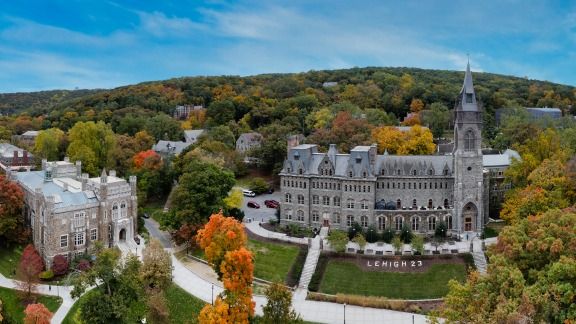President Joe Biden is finally making his long-promised visit to Africa to showcase a U.S.-backed railway project in three countries that he has pushed as a new approach in countering some of China’s global influence.Biden’s first visit to the continent as president — which he left to the very end — will highlight the Lobito Corridor railway redevelopment in Zambia, Congo and Angola.Biden starts a three-day trip to Angola on Monday. En route to Angola, he stopped off in the Atlantic Ocean island of Cape Verde off the west coast of Africa for a meeting with Prime Minister Ulisses Correia e Silva.
A new strategy
The Lobito railway project aims to advance U.S. presence in a region rich in the critical minerals used in batteries for electric vehicles, electronic devices and clean energy technologies.That’s a key field for U.S.-China competition and China has a stranglehold on Africa’s critical minerals.The U.S. has for years built relations in Africa through trade, security and humanitarian aid. The 800-mile (1,300-kilometer), $2.5 billion railway upgrade is a different move and has shades of China’s Belt and Road foreign infrastructure strategy that has surged ahead.The Biden administration has called the corridor one of the president’s signature initiatives, yet Lobito’s future and any change in the way the United States engages with a continent of 1.4 billion that’s leaning heavily toward China depends on the incoming administration of Donald Trump.”President Biden is no longer the story,” said Mvemba Dizolele, the director of the Africa Program at the Center for Strategic and International Studies, a Washington-based think tank. “Even African leaders are focused on Donald Trump.”
A fit for Trump’s vision?
The U.S. has committed hundreds of millions of dollars to the Lobito Corridor alongside financing from the European Union, the Group of Seven leading industrialized nations, a Western-led private consortium and African banks.”A lot is riding on this in terms of its success and its replicability,” said Tom Sheehy, a fellow at the United States Institute of Peace, a nonpartisan federal research institution.He called it one of the flagships for the G7’s new Partnership for Global Infrastructure and Investment, which was driven by Biden and aims to reach other developing nations as a response to China’s Belt and Road.Biden promised to visit Africa last year after reviving the U.S.-Africa Summit for the first time in nearly a decade in December 2022. The trip was kicked back to 2024 and delayed again this October because of Hurricane Milton, reinforcing a sentiment among Africans that their continent is still low priority. The last U.S. president to visit was Barack Obama in 2015.But many are optimistic that the Lobito project, which isn’t due for completion until well after Biden has left office, will survive a change of administration and be given a chance. It goes some way to blunting China, which has bipartisan backing and is high on Trump’s to-do list.
“As long as they keep labeling Lobito one of the main anti-China tools in Africa, there is a certain likelihood that it’s going to keep being funded,” said Christian-Géraud Neema, who analyzes China-Africa relations.
Some success in Africa
The Lobito Corridor will be an upgrade and extension of a railway line from the copper and cobalt mines of northern Zambia and southern Congo to Angola’s Atlantic Ocean port of Lobito, a route west for Africa’s critical minerals.It’s little more than a starting point for the U.S. and its partners, because China is dominant in the mining in Zambia and Congo. Congo has more than 70% of the world’s cobalt, most of which is heading to China to reinforce its critical mineral supply chain that the U.S. and Europe have to rely on.
Lobito was made possible by some American diplomatic success in Angola that led to a Western consortium winning the bid for the project in 2022 ahead of Chinese competition, a surprise given Angola’s long and strong ties with Beijing. China financed a previous redevelopment of the railway.
The Biden administration accelerated American outreach to Angola, turning around what was an antagonistic relationship three decades ago when the U.S. armed anti-government rebels in Angola’s civil war. U.S.-Angola trade was $1.77 billion last year, while the U.S. has a stronger stake in regional security through a strategic presence on the Atlantic Ocean, and Angolan President João Lourenço’s role mediating in a conflict in eastern Congo.
In Angola, Biden will announce new developments on health, agribusiness, security cooperation as well as the Lobito Corridor, White House officials said on a preview call with reporters.The visit, the first by a sitting U.S. president to Angola, will “highlight that remarkable evolution of the U.S.-Angola relationship,” Frances Brown, a special assistant to the president and senior director for African affairs at the National Security Council, said on a separate call.
It will also draw attention to a perennial challenge for America’s value-based diplomacy in Africa. International rights groups have used Biden’s trip to criticize the Lourenço government’s authoritarian shift. Political opponents have been imprisoned and allegedly tortured, while security and other laws have been passed in Angola that severely restrict freedoms, throwing some scrutiny on Washington’s new African partnership.
Will the U.S. really show up?
Those calling for more U.S. presence in Africa say Angola and the Lobito spinoff show what might be achieved, even with China-facing countries, if the U.S. is willing to consistently engage. But they see signs for Africa when China has held a summit with African leaders every three years since 2000, while the US has had just two summits, in 2014 and 2022, and there are no plans for the next one.Michelle Gavin, a former U.S. ambassador to Botswana and adviser on Africa to Obama, said that the U.S. had failed to take Africa seriously over multiple administrations, a bipartisan trend. She doesn’t see Biden’s visit and Lobito being a major “inflection point” that will drive a new U.S. focus across Africa.”It is not just about trying to blunt China, but trying to imagine, OK, what does it look like if we actually were to show up in a more serious way?” she said. “It’s one project. It’s one good idea. And I’m very glad we’re doing it. It’s not enough.”
Before Exiting, Biden Heads To Africa To Highlight His Own Counter To China world-news World News | Latest International News | Global World News | World Breaking Headlines Today




